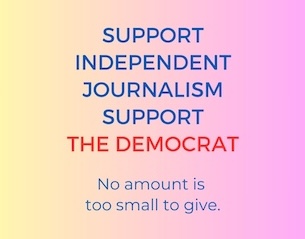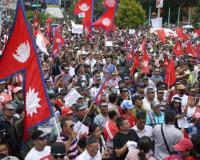- World
- ‘Pernicious evil’ of racism pervasive in ‘all regions and all societies’ – UN chief
‘Pernicious evil’ of racism pervasive in ‘all regions and all societies’ – UN chief
“Today, apartheid lies dead. But, sadly, racism lives on – in all regions and all societies”, Secretary-General António Guterres told a meeting of the General Assembly commemorating Sunday’s international day. He painted a picture of pervasive discrimination and exclusion suffered by people of African descent, injustices and oppression endured by indigenous peoples, antisemitism, anti-Muslim hatred –
“Today, apartheid lies dead. But, sadly, racism lives on – in all regions and all societies”, Secretary-General António Guterres told a meeting of the General Assembly commemorating Sunday’s international day.
He painted a picture of pervasive discrimination and exclusion suffered by people of African descent, injustices and oppression endured by indigenous peoples, antisemitism, anti-Muslim hatred – and the latest abhorrence of violence against people of Asian descent who are bring targeted unjustly for COVID-19.
“We also see it in the biases built into the codes for facial recognition and artificial intelligence” as well as the “repugnant views of white supremacists and other extremist groups”, added the top UN Official.
Pandemic of hate
Mr. Guterres recalled that last year, people around the globe protested racial injustice, recognizing racism as a “vicious global pandemic”.
He said racism was a “deeply rooted evil” – “Dangerous. Abhorrent. Ugly. And everywhere” – that transcends generations and perpetuates inequality, oppression and marginalization.
Calling it “a complex cultural phenomenon”, he upheld that everyone “must be proactively anti-racist” to eradicate racism.
Reverse ‘longstanding wrongs’
Marking the 20th anniversary of the Durban Declaration and Programme of Action of the World Conference against Racism, the UN chief said that 2021 offers an opportunity to “make an honest assessment of where we stand and where we need to go”.
“Racism manifests in many forms – conscious and unconscious”, he stated. “Combatting it demands action every day, at every level”.
Reflecting upon its historical injustices, which have contributed to poverty, underdevelopment, marginalization, social exclusion and instability for people and countries alike, the Secretary-General said it was time to “acknowledge and repair longstanding wrongs and reverse their consequences”.
He maintained that “reparatory justice” is essential for reconciliation, conflict prevention and the creation fair, equal societies, adding that it can also “help mend the social contract between people and the State”.
Youth in the fore
The UN chief highlighted the import role of youth in fighting racism, saying that their attitudes and behaviour “will dictate the future shape and look of our societies”.
As such, he appealed to young people, leaders and educators to “teach the world that all people are born equal”.
“Supremacy is an evil lie. Racism kills…let us work together to rid the world of the pernicious evil of racism so all may live in a world of peace, dignity and opportunity’, said Mr. Guterres.
COVID toll deepens
General Assembly President Volkan Bozkir, also noted that people of African descent “often have unequal access to medical care and are vulnerable to higher rates of coronavirus infection and related mortality”.
In some contexts, he pointed out that they are twice as likely to die as a result of COVID-19 than their peers, and for those who do recover, the cost of healthcare and the pandemic’s socio-economic impact, threatens “to push people of African descent into poverty”.
When healthcare, and other systems, such as justice, housing, and education, fail people of African descent, it perpetuates injustices and inequalities, he said.
‘Black. Lives. Matter’
“The onus is upon each of us to uphold the fundamental human rights of people of African descent. Let me say here today, in the General Assembly: Black. Lives. Matter”, Mr. Bozir spelled out.
Looking back
On 21 March 1960, peaceful protesters were gunned down for demonstrating against Apartheid in Sharpeville, South Africa. Listen here to survivor Elizabeth Chabeli’s first-hand account of the massacre.
ooo











